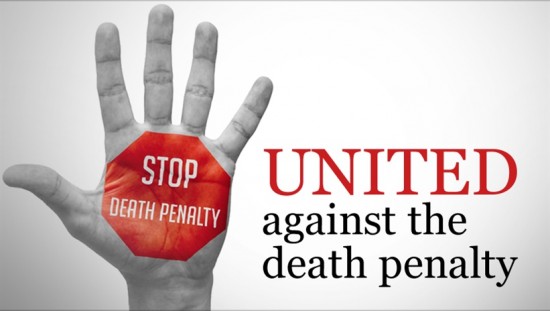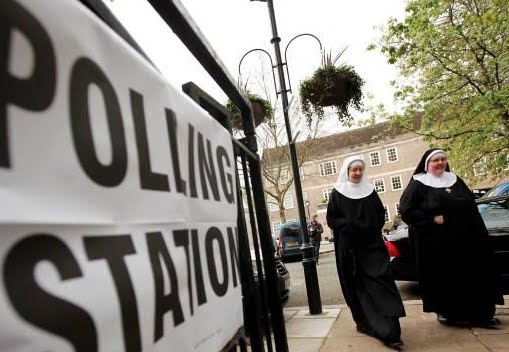The White House recently announced that President Obama will visit Hiroshima in the upcoming months making him the first sitting American president to do so since the conclusion of World War II. The White House also announced that President Obama would not be apologizing for the U.S. government’s use of nuclear weapons against Japan. I agree with the decision not to apologize, but I think that the rationale for not offering an apology is important. In this post, I argue that there are two insufficient rationales for not apologizing and one sufficient rationale for not apologizing.
The first insufficient rationale is that the United States has nothing to apologize for, because the United States did nothing wrong. As William C. Mattison III observes in Introducing Moral Theology: True Happiness and the Virtues, “The standard justification given for the use of the bomb at Hiroshima was that Japan was unwilling to surrender without being defeated militarily, and the only alternative to the use of the bomb was a full scale invasion of Japan” (164). Thus, though dropping the bomb was devastating, it saved more lives in the long run. However, Mattison challenges the assumption that dropping the bomb and full scale invasion were the only options on the table. For example, Japan could have been “blockaded rather than invaded” (165). Additionally, it is unchallenged that peace negotiations between the two countries were going on throughout 1945. The chief obstacle in the peace talks had to do with Japan demanding immunity for the emperor, while the U.S. wanted to secure an unconditional surrender. It is perplexing, then, that after the second atomic bomb was dropped on Nagasaki the U.S. was willing to ratify a peace agreement with Japan that permitted immunity to the emperor granting the Japanese that which they had originally requested. As Mattison points out, “some wonder why this term was acceptable after the bomb if it was unacceptable before the bomb” (165).
Despite the just mentioned realities, Mattison acknowledges that in war one has to make judgments on the basis of the most “accurate assessment of the situation possible” (166). On this basis, Mattison concludes that dropping the bomb was morally justifiable from a “just-war proportionality alone” mentality. However, Mattison continues his analysis with a consideration of non-combatant immunity. In order for an act of war to be just it must meet three criteria: proportionality, as just discussed, non-combatant immunity, as well as right intention. Here Mattison argues very strongly against the “militarized culture” justification for dropping the bomb:
Efforts to redefine all a nations inhabitants as combatants should be seen for what they are: a self-protective and deluded way to justify the desire to kill the innocent among the enemy, despite an unstated recognition that the innocent should not be intentionally killed. Americans do well to remember our justified outrage when our enemies make just such self-deluding claims. (170)
Regarding “right intention,” Mattison argues that clearly the “immediate intention of dropping the atomic bomb was to destroy the city and all its inhabitants, including noncombatants, to secure a further goal of ending the war more quickly and saving lives” (175). While I agree with everything Mattison has argued up to this point, I would argue that an additional further goal was to project American power to the rest of the world for the sake of geopolitical gain. Such a goal does not align with the objective of restoring justice, and is therefore not in accord with the principles of the just war tradition.
The second insufficient rationale for President Obama not apologizing during his visit to Hiroshima is better than the first but still inadequate. According to this rationale, we must remember that the Japanese were hardly innocent victims in the context of World War II and the years leading up to it. The Japanese committed uncountable horrendous atrocities against Koreans, Chinese, Americans and several others. Indeed, the Japanese government has already apologized for these atrocities several times, but the apologies have largely been rebuffed. I don’t have space to enumerate all of the atrocities here, but if you want a representative sample just google “comfort women.” Now, while I find this second rationale more compelling than the first, I still think it does not work. One cannot absolve the act of dropping the bomb on innocent civilians living in Hiroshima and Nagasaki based on the conduct of the Imperial Japanese Army in occupied territories during World War II or in the years leading up to it.
What, then, is a sufficient rationale for President Obama not apologizing during his trip to Hiroshima? I argue that it is prudent for the president not to offer an apology for two reasons. First, it almost seems insulting. It is too little too late to merely apologize for the unjustified killing of somewhere between 70,000 and 146,000 innocent civilians. Second, and more importantly, I don’t think that an apology is as important as memory. As referenced earlier with respect to the militarized culture argument, Mattison states that “Americans do well to remember our justified outrage when our enemies make just such self-deluding claims.” Yes, but I think we also need to remember the mistakes that we have made during war time in order that we don’t repeat those mistakes in the future. This is one area where Japan has received a great deal of criticism in comparison with Germany. Despite their numerous apologies, the Japanese have not done a very good job of keeping alive the memory of the horrendous atrocities they committed during the war and in the years preceding it. They seem to want to leave it buried in the past. On the other hand, one can’t walk around Berlin without constantly seeing a commemoration or monument meant to remind the citizenry of the brutality of war and the reality of what the Germans did and what took place. The purpose here is not to prompt shame. It is rather like a signpost, a warning. This did happen. This must never happen again. We can apologize if we wish, but it is more important that we remember. With regard to the dropping of the atomic bombs, then, the first thing that will need to happen, which may indeed never happen, is that Americans will have to admit that it was wrong. While we are eager to admit that nuclear weapons must never be used again, we seem curiously unable to acknowledge the historical event that most adamantly reinforces this fact.






Good topic Andrew. I think your point about memory is very good. I lean towards apologizing because I think it’s part of the process of acknowledgement, which as you mention we “need to admit it was wrong.” Not only this, but much of our military action that has caused so much harm needs acknowledged as wrong. So, this would be a good step in that direction and part of what a “just peace” approach to conflict would better illuminate. (See: http://catholicmoraltheology.com/on-the-vatican-conference-and-just-peace/)
Also, the Japanese people, including the Japanese Catholic Bishops’ Conference, have issued calls for support to stop the reinterpretation of Article 9 in the Japanese Constitution. Article 9 has been the foundation for collective security in Asia Pacific, a region of critical and increasing importance to global peace and security. The revision of Article 9 could seriously destabilize the Asia-Pacific region.
Thanks for your comment Eli. I agree that apologizing can be part of the process of acknowledging fault, presuming that the apology is sincere and followed up by actions meant to reinforce the memory of what took place. President Obama may sincerely wish to apologize, but I don’t think that he can do so on behalf of the country for the reason that a vast number (probably the majority?) of Americans still believe we did nothing wrong. Indeed, several groups have already voiced their dissatisfaction with President Obama even visiting Hiroshima which they regard as a symbolic apology whether he verbally apologizes or not.
Not only do most Americans think it wasn’t wrong. They think it was heroic. So I don’t see how President Obama can apologize for the actions of the U.S. Government without it being much more than an empty gesture.In the standard narrative Truman is a hero who did what he had to do.
Yes Andrew, I hear you on the follow up actions. What if the President’s apology wasn’t about representing what the majority of Americans think, but more about acknowledging what is wrong? I know several groups that have written him a letter glad that he is going and asking him to apologize with follow up commitments toward nuclear disarmament. I met a Bishop from Japan who was also very appreciative of his upcoming visit.
Thanks,Eli. I think we agree more than we disagree. With respect to nuclear disarmament,the talks would have to include China, South Korea, North Korea, and Russia, given the geopolitical realities Japan is currently facing. Regarding the apology, however, I remain ambivalent. On the one hand, as you mention, it could be a good starting point. On the other hand, I doubt it would do much to alter the collective memory. Do you think that a bold apology by President Obama followed up by nuclear disarmament talks would have an influential effect on the thinking of those who still employ the “standard justification” for what took place in Hiroshima and Nagasaki or do you think it would merely motivate them to cling more tightly to the views they already hold?